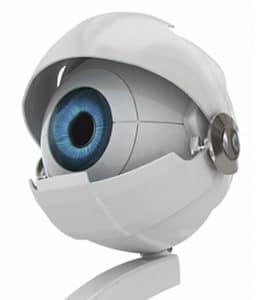Bill Gates’ fanciful memory
Love or loathe Bill Gates, one must admit—the man is a part of technology history. His lifetime accomplishments are many.
Which makes it all the more inexplicable that his inner Santos insists on some outlandish resume embellishment.
Weighing in on AI with his blog article, The Age of AI has begun, Bill puts AI in context. He sees it as one of two revolutionary demos he’s seen in his lifetime. This is how he describes the first.
“[It] was in 1980, when I was introduced to a graphical user interface—the forerunner of every modern operating system, including Windows. I sat with the person who had shown me the demo, a brilliant programmer named Charles Simonyi, and we immediately started brainstorming about all the things we could do with such a user-friendly approach to computing. Charles eventually joined Microsoft, Windows became the backbone of Microsoft, and the thinking we did after that demo helped set the company’s agenda for the next 15 years.”
Impressive! Who else but Bill Gates could spot the potential in this graphical interface thing and develop the software to help us do all that amazing future-y stuff?
Oh, right. That other guy. Steve something-or-other, was it?
This calls for some serious fact checking. So I now turn to our dependable old friend, Reality.
Bill Gates and Steve Jobs weren’t far apart at the starting line. Taking Bill at his word, his moment of inspiration came at a 1980 demo, while Steve found inspiration during his visit to the Xerox PARC labs in 1979.
However, from their similar starting points, history shows that the two took entirely different paths.
In January, 1983, while Bill was busy “envisioning,” Steve shipped the first computer with a graphical interface—Lisa. One year later, he unveiled Macintosh, taking graphical computing mainstream. Still nothing from Bill.
It wasn’t until November, 1985, nearly two years after Macintosh and five years after his moment of inspiration, that Bill shipped Windows 1.0. BUT… after all those years, that first version of Windows wasn’t even a complete OS. It was an extension to Microsoft’s Jurassic-era PC interface, with crude graphics and windows that couldn’t be layered.
Fast forward two more years to 1987. That’s when Bill finally shipped Windows 2.0, Microsoft’s first OS with an integrated graphical interface—and Steve Jobs promptly sued for Grand Theft Interface.
However Bill wants to be remembered, he was not the brash, inventive hero of the revolution. His Windows origin story ignores what history proves: Apple was the leader and Microsoft was the follower.
What Bill can claim is that in the tech business, being first does not guarantee success, short- or long-term. Though it had to play catch-up with Apple, Windows went on to earn unfathomable billions over the decades. The Mac market is thriving, but there are vastly more PCs in this world.
One of the great observations on this topic comes from another Bill Gates—the fictional one depicted in the old movie, The Pirates of Silicon Valley. In that film’s final confrontation, Jobs fumes at Gates for stealing Apple’s ideas to create Windows.
Steve says,”We’re better than you,” and Gates fires back, “You don’t get it, Steve—that doesn’t matter.”
Ouch. But Imaginary Bill does have a point. Apple being better (or first) did not shake Microsoft’s stranglehold on the PC market. Macintosh struggled mightily in those days.
But back to Bill’s article.
Do I detect a wee bit of an ego issue? It appears that Bill never got over the many years that Steve Jobs was praised as the true visionary, and not him.
I do understand Bill referencing the graphical interface to begin his article. Like AI, it was a world-changing idea. But he’s gone light years beyond referencing—he’s claiming 100% credit.
In his alternate universe, Bill Gates alone saw the future, he alone did the hard work, and he alone created a new future for all of us with his revolutionary software.
That is one wildly bonkers misrepresentation. And I fear that those who don’t know the history will actually believe it.
I can’t deny that Bill Gates helped write the history of computers. Who could? It’s just a shame that his ego insists on rewriting it now.


Thank you for knowing and writing the truth of what happened way back when. I also do hope that the truth of what happened back then will be made more available to all.
Amazing how people forget, isn’t it. And how some people in particular want us to forget.
No. I invented it at The Old Town Tavern in 1976 after 6 Rolling Rocks and a stale pretzel. At least that is how I remember it.
The first Macintosh and the first Windows PCs were like night and day. The Macs operating system was elegant, modern, logical and had style. It was a joy to use.
Windows 1.0 was embarrassing. It was so bad, so ugly and just plain awful that nobody thought of Windows as a kind of “Macintosh, just cheaper”. Even the colours of the UI were a pain to look at. It looked like it was styled by a 4-year-old. It will be remembered as one of the worst product launches of all times. Everybody involved needed to change their names, but Bill Gates didn’t, because he didn’t even understand how awful it was. Well, maybe he did understand it but shipped it anyway.
Everybody hated Windows until Windows 95. I had friends with Windows 3.1 on their PCs, and they hated it so much that they dreamed at night that they would destroy the PC with a small kitchen knife.
Hey Ken! Nice to read a new post from you!
Thanks for the more horrified memory of Windows. I was probably being too kind 🙂 Re: my posting frequency—yeah, I’ve been a bit distracted this year. I need to fix that!
I thought Elon Musk invented it.
Believe it took five project managers to deliver Windows 1.0. And few celebrated when it arrived. Steve Ballmer was the last project manager, the previous ones were fired or burned out. Only shows how important perseverance is.